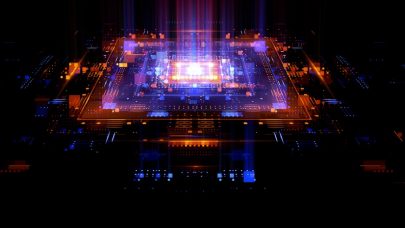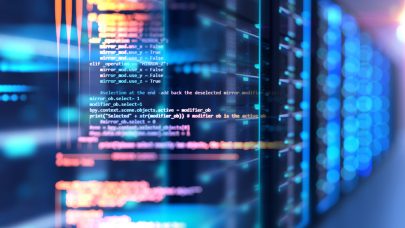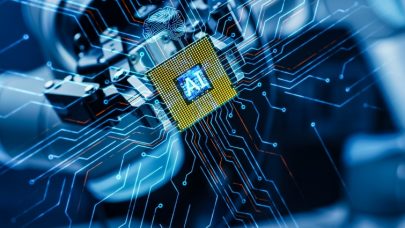June 30, 2023 — New research revealing how honeybees can make fast and accurate decisions, which could help to design more efficient robots and autonomous machines, has been published by scientists at the University of Sheffield.

The study, led by Dr. HaDi MaBouDi from the University’s Department of Computer Science with Professor Andrew Barron from Macquarie University in Sydney, has uncovered the complex strategies that honeybees use to decide which flowers are worth exploring.
Despite this complexity, the research has revealed how the insects make rapid decisions about where to forage for nectar. Their decisions are highly accurate – more so than humans – despite the honeybee brain being the same size as a sesame seed.
Published in the journal eLife, the study has enhanced our understanding of how the honeybee brain works and has evolved, and the Sheffield scientists say it is inspiring a new generation of robots and autonomous machines that can think like a bee – capable of making fast, accurate and efficient decisions autonomously.
In the study, the researchers trained 20 bees to recognise five different coloured artificial flowers. Blue flowers always contained sugar syrup, green flowers always contained tonic water with a bitter taste that bees dislike and the remaining colours sometimes had glucose.
The team then introduced the bees to a custom-designed garden where the flowers only had distilled water to test their performance in different scenarios. The researchers filmed each bee then tracked their path and timed how long it took them to make a decision on which flower to visit.
Results showed that if the bees were confident that a flower would have food, they quickly decided to land on it – on average in 0.6 seconds. If they were confident that a flower would not have food, they made a decision just as quickly.
The scientists then built a computer model aiming to replicate the bees’ decision-making process. Upon review, they found the structure of their computer model looked very similar to the physical layout of a honeybee brain.
Dr. HaDi MaBouDi, from the University of Sheffield’s Department of Computer Science, said: “Each time a bee sets out to collect nectar, for example, it must use tiny variations in colour or odour to decide which flower it should land on and explore. Each mistake is costly, wasting energy and exposing the insect to potential dangers. To learn how to refine their choices through trial-and-error, bees only have at their disposal a brain the size of a pinhead, which contains fewer than a million neurons. And yet, they excel at this task, being both quick and accurate.
“What we’ve done in this study is reveal the underlying mechanisms which drive these remarkable decision-making capabilities. We can now use these to design better, more robust and risk-averse robots and autonomous machines that can think like bees – some of the most efficient navigators in the natural world.”
Professor Andrew Barron, from Macquarie University in Sydney, added, “A honeybee has a brain smaller than a sesame seed and yet it can make decisions faster and more accurately than we can. A robot programmed to do a bee’s job would need the backup of a supercomputer.”
In related work, scientists from the University of Sheffield are reverse engineering the brains of honeybees and other insects to design the next generation of autonomous technology.
Opteran, a spinout company founded by Professor James Marshall from the University’s Department of Computer Science, is developing lightweight, low cost silicon brains that enable robots and autonomous vehicles to see, sense, navigate and make decisions like insects do.
The company believes its approach to autonomy, called Natural Intelligence, will significantly expand the potential market for autonomy in machines and robotics.
Professor Marshall, who was also part of the study, said, “Our research has demonstrated how bees are capable of complex autonomous decision making with minimal neural circuitry. Millions of years of evolution has led bees to have incredibly efficient brains with very low power requirements. This biology can inspire the future of AI.”
The study, How honey bees make fast and accurate decisions, was led by Dr HaDi MaBouDi, Neville Dearden and Professor James Marshall from the University of Sheffield with Professor Andrew Barron from Macquarie University in Sydney. The paper is published in eLife. Access it in full.
Source: The University of Sheffield
































































